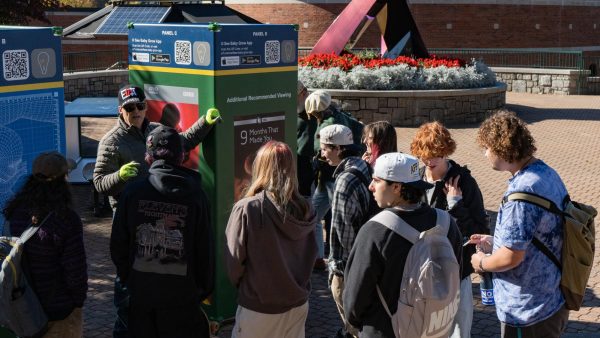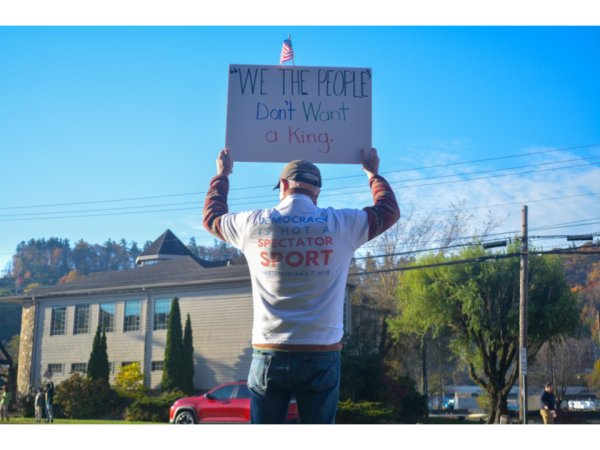Hijabi Hot Takes: HBCUs remain superior
February 15, 2023
Historically Black Colleges and Universities have been staples of the Black American experience for nearly 200 years, with the oldest HBCU being founded in 1837. HBCUs are institutions founded before 1964 with the purpose of educating Black youth who were not allowed to attend already established institutions due to their race. Many HBCUs, founded in the South, were supported by the Freedmen’s Bureau, a federal organization created after the Civil War during the Reconstruction period which aimed to assist former enslaved people in adjusting to life after slavery.
Although HBCUs make up only 3% of the United States’ colleges and universities, 10% of all Black students in the U.S. attend an HBCU. Furthermore, HBCUs have produced 20% of all Black college graduates in the country, and 25% of Black STEM graduates.
As predominantly white institutions increase incentives for Black students to join their institutions, the strength of HBCUs remains untouched. For example, North Carolina A&T State University saw an 8.51% increase in applicants between 2019 and 2020. Similarly, Howard University saw a 15.8% increase in applicants between 2019 and 2020. The demand for HBCUs has only grown overtime for several reasons, some due to the shortcomings of PWIs. North Carolina is the state with the second most amount of HBCUs, Alabama having most. North Carolina currently houses eleven active HBCUs: Shaw University, Barber-Scotia College, Johnson C. Smith University, Fayetteville State University, Saint Augustine’s University, Bennett College, Livingstone College, North Carolina A&T State University, Elizabeth City State University, Winston-Salem State University and North Carolina Central University. In a state with such a large amount of HBCUs, it is no surprise PWIs are having trouble recruiting and retaining Black students. For many Black students, HBCUs are the better option due to the atmosphere, support, costs and tradition.
Black students deserve spaces in which they feel supported and cared for. According to a 2015 Gallup-Purdue poll, Black HBCU graduates were more likely to say they felt supported in their undergraduate experience than Black graduates of other institutions. Feeling supported at an institution is crucial to a student’s success and ultimately whether or not they graduate. Students of every background are more likely to succeed in an atmosphere they feel a sense of belonging to. Many PWIs, arguably, do not do enough to ensure their students of color feel supported and a sense of belonging in their community. At an HBCU, however, Black students are more likely to get involved because opportunities are created by and for them.
One of the many reasons Black students will choose an HBCU over a PWI is the emphasis on culture. African American culture is arguably the most influential culture in the U.S. With popular culture trends constantly being derived from African American culture, HBCUs have become epicenters of culture, trends, movements and more. HBCU culture also places emphasis on tradition. There are many traditions Black students look forward to as part of their college experience at an HBCU, including but not limited to: an extremely active Greek life, unforgettable homecoming celebrations, an appreciation for all things marching band and more. HBCU homecoming concerts often feature star-studded lineups with artists such as Lil Durk, Lil Baby, Roddy Ricch and Ty Dolla Sign. HBCU concerts are highly anticipated by not only the students of the universities, but also the greater Black community. Simply put, HBCUs are a hub for Black culture to thrive and influence culture across the country.
Financially, choosing an HBCU proves to be the most economical decision for many Black students. According to the National Education Association, “about one in four HBCU students grew up in the very lowest income quintile.” Additionally, about 70% of all HBCU students qualify for federal pell grants. HBCUs’ tuition costs, both private and public, are generally 30% less expensive than their PWI counterparts. HBCUs’ commitment to narrow the racial wealth gap keeps costs low and encourages degree completion without the stress of going too far into debt. According to a UNCF report titled “HBCUs Transforming Generations: Social Mobility Outcomes for HBCU Alumni,” HBCUs serve as the “primary post-secondary driver for moving Black Americans from poverty to the middle class.” Social mobility and a promise of financial stability is yet another attractive aspect of choosing an HBCU.
When it comes to choosing where to pursue post-secondary education, things like culture, atmosphere, support and finances are taken into consideration. For Black students, a lot of those aspects ideally fall into place at an HBCU rather than a PWI. The rich history of HBCUs, including the long list of American role models who were educated at an HBCU, will continue to encourage and inspire generations of Black students to pursue their studies at an HBCU. These universities will continue to thrive and be a hub for Black excellence well into the future.












